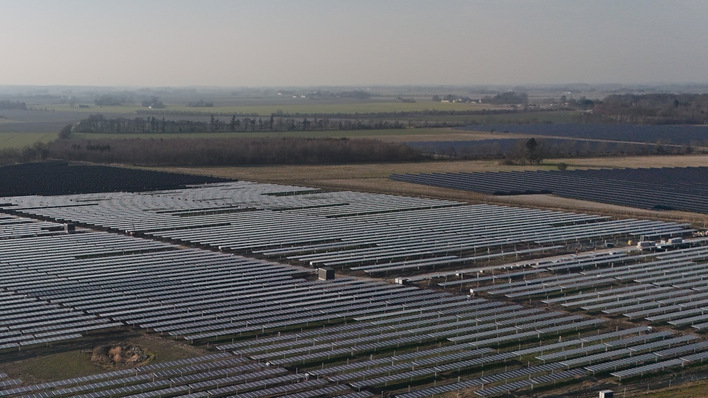The association's Task Force on Solar & Storage has created ten Policy Asks that are crucial to develop an appropriate framework for solar & storage. Background are also the rapidly decreasing prices for energy storage systems. Recently prices for residential battery storage systems dropped below 1,000 Euro/kWh, for commercial systems below 800 Euro/kWh. But those progresses are partly undermined by inhibiting and unstable regulation. In member states as Spain grid connected solar self-consumption is yet burdened with punitive taxes and fees and Germany did not implement yet a lower levy for solar & storage. The UK government plans to debit the self-supply of solar commercial rooftops and risks devastating this market segment. EU Commissioner for Energy Maroš Šefčovič end of September announced the deletion of the feed-in-priority of solar and renewable power.
Sucessful cost reduction needs the right policy framework
Riccardo Amoroso, Chief Innovation Officer of Enel Green Power and Vice President of SolarPower Europe, says, "The industry is being very successful in bringing down the cost of stationary battery storage and in improving its ability to provide efficient services and solutions to the market. Today we need European policy makers to put in place stable regulatory conditions including clear definitions and an appropriate market design to ensure a level playing field among competing solution providers. Such conditions will allow for further innovations and corresponding market growth."
Lift the renewable energy targets
While the solar power market in Europe has been in a transition phase over the last few years, the combination of solar and storage is the perfect fit to lift solar power to the next growth level. Michael Schmela, Executive Advisor at Solar Power Europe, comments "If the regulatory environment for solar & storage is set effectively, solar power will strongly contribute to reaching the 27 percent target for renewable energy in 2030 in the current draft RE directive. Implementing our 10 policy priorities for solar & storage in the Energy Union Package would already go a big part of the way to achieving the realistic 35 percent target Solar Power Europe would like to see in the new REDII 2030 directive."
Maximize the value of solar electrictiy
The benefits solar & storage bring to the energy system and European consumers are manifold. Solar & battery storage allows consumers to implement new and smart business models that maximize the value of solar electricity. It unlocks solar's flexibility potential at the consumer level - consumers could now offer services to grid operators. On a system level, solar generation can be used more cost-effectively together with storage.
Flexibility options for the entire energy system
Thomas Doering, Policy Analyst at SolarPower Europe and Coordinator of the Task Force Solar & Storage says "Solar & battery storage installations represent an important flexibility option for the entire energy system, enabling to inject or absorb electricity generated by a solar system when the system requires it. Together, solar & battery storage allows continuous short term supply of clean and cheap electricity, overcoming the variability of solar electricity generation."
Solar & storage - ten policy priorities
The combination of solar and storage is the perfect fit to bring penetration of solar power to the next growth level in Europe, to achieve 2030 RES targets, flexibility requests across the EU and active consumers, European solar body believes. The following ten policy asks - at both European and national levels - are crucial to develop an appropriate framework for solar & storage, the association proposes:
1. An EU-wide definition of "electricity storage" should be introduced in the revised Electricity Directive. This definition should:
2. Clarifying the definition and rights of active consumers regarding storage: the REDII should enshrine the right for consumers to self-generate and consume renewable energy:
3. An appropriate reform of the intraday markets is crucial for enabling large-scale solar plants to better take on balancing responsibilities.
4. A real market for selling and procuring flexibility services must be developed, both at transmission and distribution levels.
5. A clear basis regarding rules and circumstances under which TSOs and DSOs may operate storage solutions must be developed.
6. Targeted solar tenders can incorporate as a weighting selection criteria the co-location of solar & storage.
7. The exchange of electricity on a community scale via collective self-consumption schemes must be possible for active consumers.
8. Clear rules regarding data transparency and access for all stakeholders are required.
9. Active consumers should be remunerated fairly for providing their devices to deliver services that support the electric grid.
10. Distribution grid tariffs must be "fit for the energy transition" and incentivise consumers to invest in storage and advanced meters.
This Wednesday, November 30 the EU-Commission is scheduled to reveal its so called winter package. (HCN)
Stay informed, get our weekly newsletter. Register here: http://www.pveurope.eu/Newsletter
Related news:







